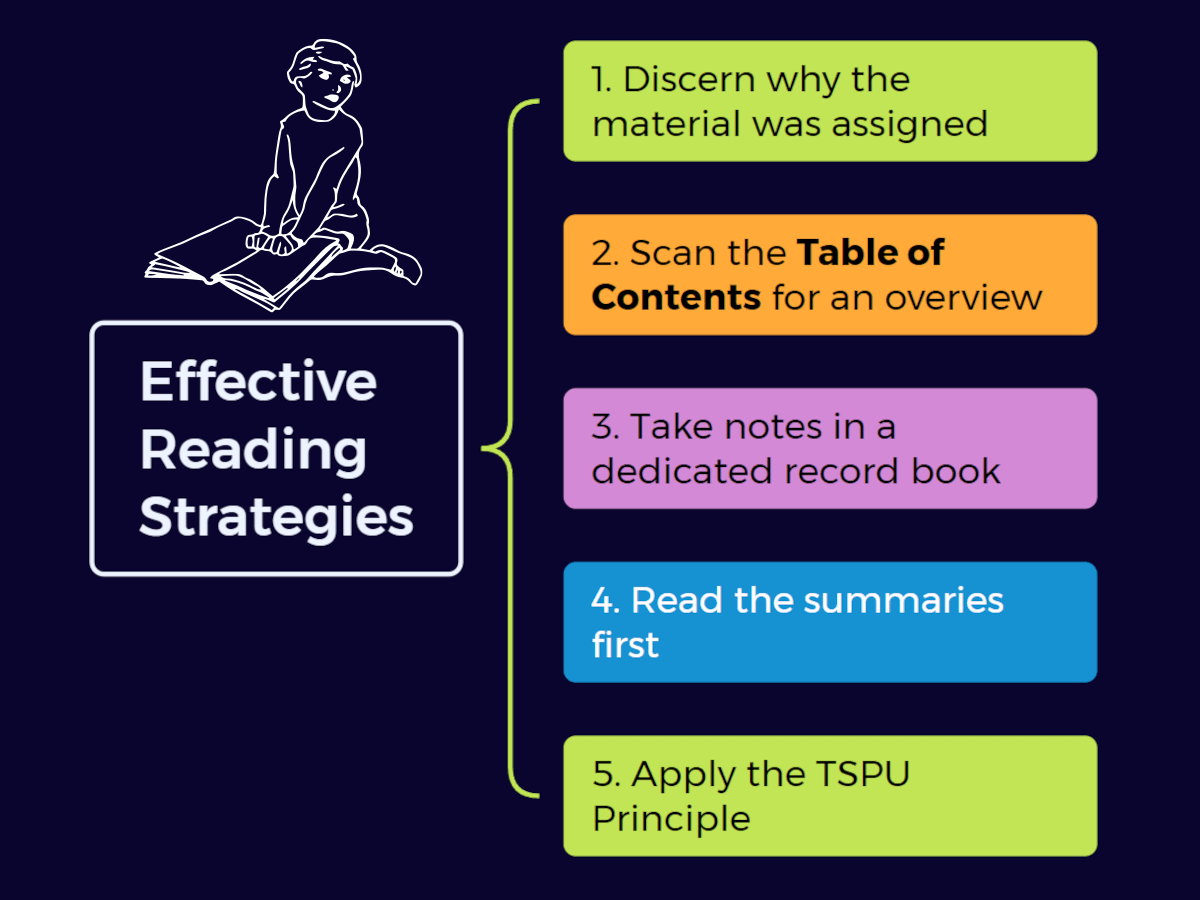
Table of Contents
5 Effective Reading Strategies for Graduate Students
Graduate students are expected to do a lot of reading to familiarize themselves with theories, concepts, and ideas in their field of specialization. This intense reading load is essential for developing critical thinking skills and effectively engaging in research work.
If you’re overwhelmed by the mountain of journal articles, books, and handouts, here are five practical reading tips to help you read smarter—not harder. I’ve used this myself when tasked with a lot of readings in my graduate studies. Reading was a breeze using these effective reading tips.
1. Figure Out Why the Material Was Assigned
Before going through a book or journal article, ask yourself first the following questions:
- What am I looking for in this reading?
- Where can I find it in this reading material?
Knowing the purpose of the reading will keep you focused and prevent you from wasting time on less relevant sections. This mindset transforms reading from a passive activity into an intentional and goal-driven process. Focus on what’s important given that tight deadline in writing your critique paper. You need to do it as quickly as you can.
2. Scan the Table of Contents for an Overview
When dealing with thick textbooks or academic books, the table of contents (TOC) is your best friend. Chances are, your professor assigned you at least five books, or even more, to read during the semester. I once did. And that’s for only one subject. Imagine doing this and sacrificing your weekends of rest.
By skimming the TOC, you can quickly:
- Identify chapters relevant to your research
- Skip sections you already know
- Focus on new or essential content
This strategy is often more effective than “speed reading” because it helps you prioritize what actually matters. It’s reading smart, not fast.

3. Take Notes in a Dedicated Record Book
Instead of scribbling notes on random sheets of paper, keep a dedicated record book exclusively for your readings. It’s easy to forget where we jotted down notes, but a single, organized record book solves that problem. Once you’ve written your notes, you can neatly store the record book alongside your other materials and even label its spine for quick reference.
- Write the main topic at the top of each page.
- Use bullet points for key ideas and terms.
- Add stars or symbols for concepts you need to revisit.
A well-organized note-taking system makes it easy to retrieve your insights later for papers, class discussions, or your thesis—ensuring no important information gets lost. Always include the source of your notes, especially the page number, as this will save you time when quoting or citing. I once skipped this step and ended up spending hours tracking down the original source.
4. Read the Summaries First (If Available)
Many books and journal articles include summaries or abstracts. Use these to “warm up” your brain.
- A summary provides a quick overview of the key points.
- This helps you digest the content faster because you already know the main ideas.
Think of it as reading the trailer before watching the full movie—it sets expectations and saves time.
5. Apply the TSPU Principle: Focus on Topic Sentences
Most well-written academic texts follow the Topic Sentence–Paragraph Unity (TSPU) principle.
Here’s how to use it:
- Read the first sentence of the paragraph (the topic sentence).
- If it’s clear, move on—you’ve captured the main idea.
- If it’s vague, read the supporting sentences for clarification.
This selective reading approach helps you cover more material without burning out. If you come across a concept that sparks your curiosity, take the time to explore it further. When a topic truly interests you, you’re the best judge of whether it’s worth going deeper into additional reading.
Summary and Conclusion
Graduate school reading doesn’t have to feel overwhelming. By discerning your purpose, skimming strategically, taking organized notes, and using summaries and topic sentences wisely, you can manage your workload, retain key concepts, and even enjoy the process.
Happy reading—and here’s to a more efficient, less stressful grad school journey!



